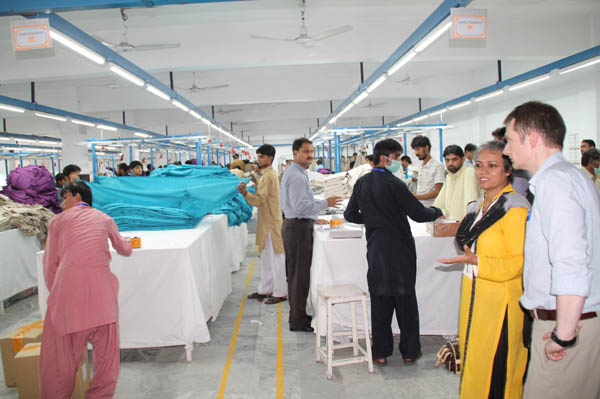WWF-Pakistan has been awarded the National Energy Globe Award for its project City-wide Partnership for Sustainable Water Use and Water Stewardship in SMEs in Lahore, Pakistan. Funded by the European Union, it aims to promote water efficient production and consumption practices in the country’s Small and Medium Enterprises (SMEs) through the implementation of Best Water Management Practices (BWMPs).

With partners WWF-UK, and Cleaner Production Institute, and associates Lahore Chamber of Commerce and Industry (LCCI) and Punjab Small Industries Corporation(PSIC), the project targets four major industrial sectors; textile, sugar, paper and pulp and tanneries to reduce their emissions and turn to sustainable water consumption through implementation of Best Water Management Practices. Additionally, the project aims to create a city-wide partnership comprising of SMEs, public authorities and multinational companies to facilitate better water governance in Lahore.
This initiative has helped industries reduce their water and energy footprint through the implementation of Best Water Management Practices. The water related energy efficiency has resulted in the reduction of 6 MW per year in 35 pilot SMEs. Energy efficiency is also contributing in the reduction of 10,000 tons of CO2 per year.
Ali Hasnain Sayed, Manager, Water Stewardship and Security, WWF-Pakistan and also Project Manager of the winning endeavor said, ‘Water consumption and energy reduction go hand in hand; moreover South Asian countries like Pakistan are water based economies hence agriculture, industry, civil society, businesses and governments have to come forward to take stewardship of the resource. It is imperative to understand that water is everybody's business.’
Energy Globe Awards is a unique online-campaign under the patronage of UNESCO in cooperation with the United Nations Environment Programme (UNEP). Energy Globe aims to educate people about the sensible and economical use of resources and the use of renewable forms with the help of best practices. The award has become a significant signpost to the future and raises global public attention about already existing good solutions for many problems among the international arena. This year the environmental prize received over 1,500 project submissions from 177 countries. The WWF-Pakistan project was recognized as the best in Pakistan.
Truong Duy
